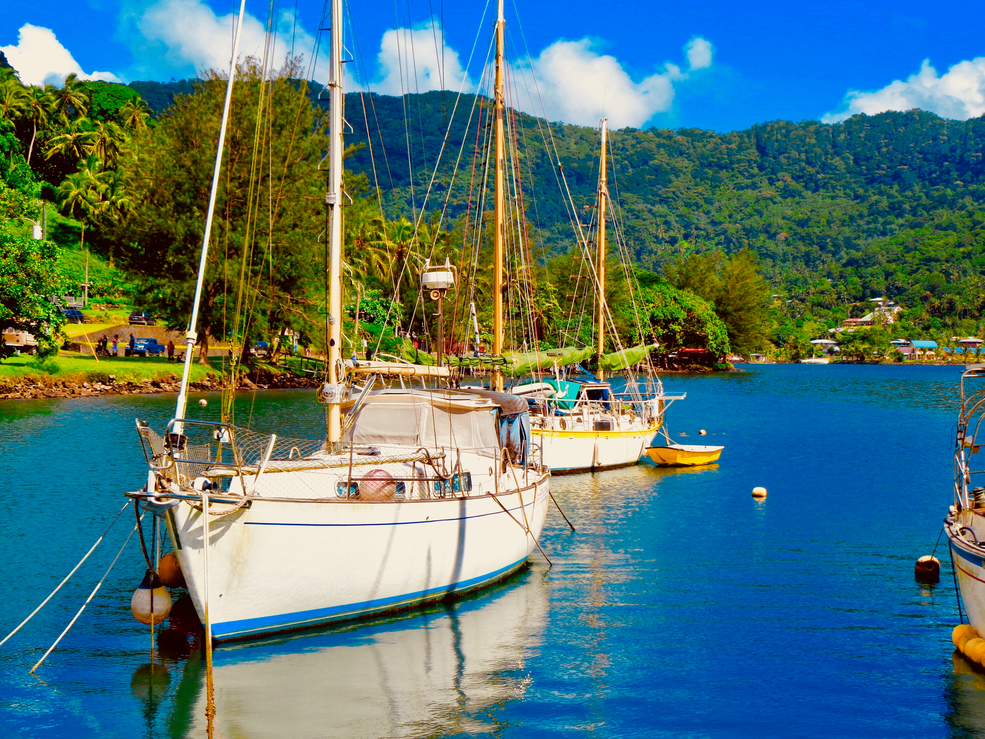
Samoa in Focus
“Ratification and implementation of the UN Convention against Torture signals our commitment to upholding international human rights standards. [I]mplementing the Convention will be critical to our efforts to deliver on SDG 16 and our vision to promote a safe, fair and just Samoa,” stated Hon Tuilaepa Sailele Malielegaoi, Prime Minister of the Independent State of Samoa, upon acceding to the UN Convention against Torture and Other Cruel, Inhuman or Degrading Treatment or Punishment (the Convention, or UNCAT) on 28 March 2019.
Samoa’s Constitution guarantees freedom from torture and ill-treatment, and since it ratified UNCAT, the Government has been taking action to concretise it.
UNCAT supports sustainable development in Samoa
Samoa has viewed its participation in UNCAT as a priority for achieving the 2030 Agenda for Sustainable Development. As common goals for both the Convention and the Sustainable Development Goals (SDGs), Samoa is giving particular importance to improving crime management strategies, and fairer and more responsive justice systems.
In the country’s Voluntary National Review, in July 2020, UNCAT was referred to as helping attain Goal 16 on Peace, Justice and Strong Institutions:
Samoa’s recent ratification/accession of the UNCAT and UNCAC [United Nations Convention against Corruption] signal the importance placed on addressing corruption, strengthening the rule of law and administration of justice, facilitating effective law enforcement, and producing safer and professionally managed prisons. Furthermore, Samoa does not have a military force nor an armed police force. Thus, strict observance of the rule of law is critical to ensuring a safe and peaceful Samoa and meeting our international governance, justice and peaceful society obligations.
Samoa’s Voluntary National Review
Stepping up training for police and law enforcement officials
Samoa has lost no time in beginning to implement the Convention by bolstering training for police and law enforcement personnel. In 2019, 100 new police recruits were trained. In 2020, members of the Samoa Police Service, Ministry of Justice and Courts Administration and other relevant stakeholders participated in a training facilitated by the Fiji Police Force, UNDP, and the British High Commission in Samoa, which focused in particular on video-recorded interviews and non-coercive investigative interviewing techniques, both safeguards that have in many other countries reduced significantly risks of abuse or coercion, and securing reliable convictions.
This training marks a significant step in our efforts to ensure that all arrested and detained persons are treated in line with UNCAT and international standards.
Mr Fuiava’ili’ili Egon Keil, Samoa’s Police Commissioner
Yearly trainings are also being organised for new police recruits, in cooperation with Samoa’s Office of the Ombudsman, which also operates as the country’s national human rights institution (NHRI). Samoan police have further developed guidelines to follow in their daily work, covering operational areas of arrest, interrogation and detention.
Monitoring mechanisms reinforce anti-torture efforts
In order to track its human rights commitments, Samoa established a National Mechanism for Implementation, Reporting and Follow-up (NMRIF) in 2016, which was also involved in preparations for Samoa’s accession to UNCAT. Samoa’s NMIRF serves as an example to emulate for other Pacific States, particularly thanks to its use of technology through the Sadata tool, which is an online tool, accessible to all, to centralise the country’s progress on all indicators and recommendations linked to human rights and SDGs. With it, the NMIRF can efficiently prepare reports to the United Nations system, including the initial report to the Committee against Torture. Samoa is also one of the eight countries to have endorsed the “Pacific Principles of Practice” for NMIRFs in 2020.
Additionally, Samoa’s monitoring framework is strengthened by being the first Pacific country to establish a National Human Rights Institution (NHRI) compliant with the Paris Principles. The independent Office of the Ombudsman has been entrusted with the role to monitor compliance by national organs with human rights and investigate allegations of violations. As such it is an important actor in torture prevention and response. In particular, the Ombudsman’s Office visits places where persons are deprived of their liberty and makes recommendations to the Government where improvements could be made. In 2019, 70 per cent of the Ombudsman’s recommendations on prisons were implemented. The NHRI further recognised the efforts made by the Ministry of Police in upgrading police cells and human rights trainings for recruits, and welcomed measures put in place by the Prisons and Correctional Services to improve issues of accommodation and access to food and water in places of detention.
The impact of such independent and reliable oversight mechanisms reinforces Samoa’s actions and resolve to create a country and society free from torture and ill-treatment, in line with the Convention.
CTI and Samoa cooperation
In the lead up to Samoa’s accession, the Convention against Torture Initiative (CTI) was pleased to cooperate with the Government and held an awareness-raising workshop followed by a diplomatic visit by a CTI delegation in October 2017. This type of cooperation allowed the authorities to appreciate the scope of the obligations and benefits of the Convention, launch a review process of relevant laws and practices, and be ready to hit the ground running to implement UNCAT once the country became a party.
For States interested in how CTI can support their efforts towards ratification and/or implementation of UNCAT, please contact our Advice Hub at advicehub@cti2024.org.

